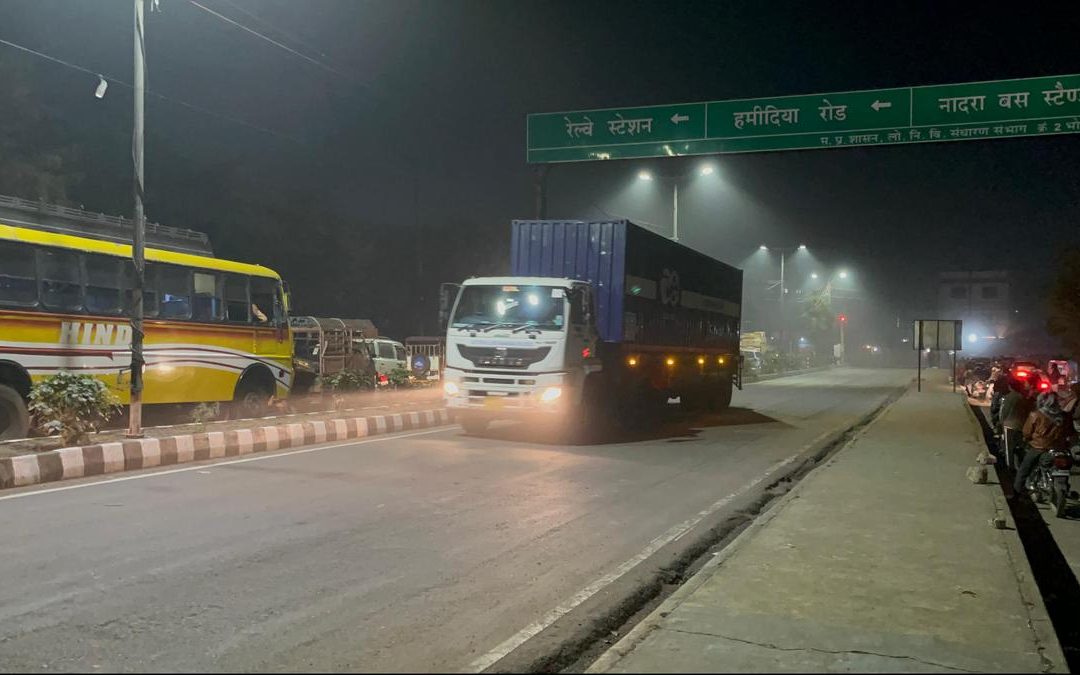BHOPAL/INDORE: Nearly four decades after the 1984 Bhopal gas tragedy, trucks carrying hazardous waste from the Union Carbide site began their journey to a disposal facility in Pithampur, 230 kilometers away, on Wednesday night. While this long-awaited step marks progress, workers and residents near the disposal site voiced concerns about potential safety risks.
“Transportation to Pithampur has commenced under an unprecedented security protocol,” said Swatantra Kumar Singh, Director of Madhya Pradesh Gas Relief and Rehabilitation Department. The convoy, carrying 337 metric tons of sealed hazardous waste, departed at 9 PM under police escort and emergency vehicles through a green corridor.
This movement comes after four days of preparation, closing a chapter on one of the world’s worst industrial disasters. The waste is expected to reach its destination within seven hours, where it will undergo scientific incineration at Pithampur Waste Management Pvt Ltd over the next three to nine months.
High Security and Strict Protocols
The convoy consisted of 12 trucks within a 40-vehicle fleet, stretching over a kilometer. With a no-halt, no-stop directive, the operation was bolstered by 700 security personnel and heightened vigilance across five district administrations.
Strong directives from the Madhya Pradesh High Court expedited the long-overdue disposal. A division bench, led by Chief Justice Suresh Kumar Kait and Justice Vivek Jain, issued a stern December 3rd order questioning the delay and setting a four-week deadline for action.
Addressing Safety Concerns
To assuage fears among Pithampur residents and industrial workers, MP Pollution Control Board Regional Officer Shriniwas Dwivedi released a video detailing safety measures. “A leakproof shed with a concrete floor has been constructed. The process will not impact people, land, or the environment,” he assured.
Despite these reassurances, anxiety persists. Some workers at nearby plants have sought leave, citing safety concerns, while their families are raising questions about the situation. “Employees are under immense pressure. We are receiving constant calls from worried families,” said Dr. Darshan Kataria, a local industrialist.
Rajendra Modi, director of an engineering unit in Pithampur, expressed frustration over the lack of communication from officials. “The government has not engaged with us or shared contingency plans. While the tragedy in Bhopal was an accident, this situation can be managed better by taking everyone into confidence,” he said.
Government Reassurances
Swatantra Kumar Singh has reiterated that all safety protocols are being followed under expert supervision. “There is no risk to the environment, land, or people near the disposal facility,” he stated, emphasizing that the operation is designed to prevent any adverse consequences.
The disposal of this toxic legacy from Bhopal symbolizes progress, but the lingering fears among those near the Pithampur facility underline the need for transparent communication and proactive community engagement.






